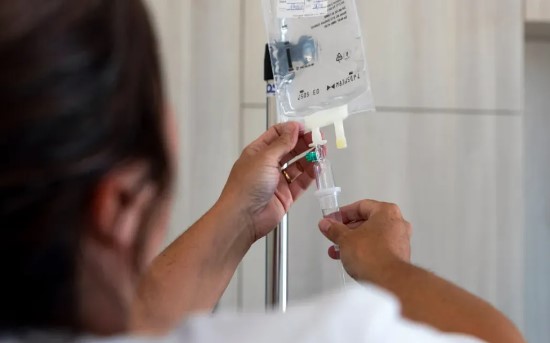How Ketamine Therapy Helps with Treatment-Resistant Depression

Ketamine is an anesthetic that was formulated in the 1960s. It has been used for many years as an anesthetic and, more recently, as a treatment for chronic pain. In the recent past, physicians have administered sub-anesthetic doses of ketamine in the treatment of depression. Ketamine treatment for depression is useful for treating depression that is unresponsive to other treatments available. The condition is known as treatment-resistant depression.
How Ketamine Works
Ketamine is not like any other antidepressant, and it has the potential to help people suffering from depression. It interferes with an organ in the brain known as the glutamate system. They discovered that glutamate is a chemical that transmits messages between two neurons. It is called “neuroplasticity”, and it’s pretty much what it sounds like. Ketamine makes neurons fire more effectively in the brain. This can make a person less depressed as it instantly changes the mood for the better.
Ketamine, an Effective and Fast-acting Antidepressant
Stress the importance that ketamine, as an antidepressant, works rather fast compared to all the other drugs currently in use. Reports indicate that people’s condition improves within a few hours after taking the drug. This rapid effect makes ketamine a different type of therapy for depression compared to the other methods.
Since most drugs in this category are classified as selective serotonin reuptake inhibitors, it may take several weeks before the patient starts experiencing relief. Some patients need quick results, which can be provided by ketamine since its effectiveness is not dependent on time.
Administering Ketamine Treatment
Administer infusion ketamine intravenously (IV). Moreover, this means you introduce it into the vein through the bloodstream. Each dose usually takes about 40 minutes to administer. Furthermore, in a process that may span several weeks, the individual receives several ketamine infusions. Additionally, to prolong the results, the treatments must be sustained. Some clinics recommend patients have booster infusions to reduce the chances of relapse to depressive symptoms.
Effectiveness for Treatment-Resistant Depression
Multiple investigations have shown that ketamine plays an effective role in decreasing the symptoms of major depression. Individuals who did not benefit from several typical antidepressant medications experience the impact. Health care professionals should prescribe a one-time dose as it can alleviate depressive symptoms for two weeks. Many individuals require repeated administrations to sustain the advantages going into the more drawn-out length. Researchers still need to do more to establish the effectiveness of ketamine therapy from a clinical trial point of view.
Less Harmful Side Effects Of Radiation Depend On Low Dose
Researchers also found that the dosage used for depression is far less than that used in anesthetic procedures. Isoetamine, like ketamine, is sympathomimetic at these doses and does not produce anesthesia. It is important to note that the serious side effects may include dizziness, nausea, headache, and disorientation during the infusion process. The 3cm high and 10x more frequent doses may cause moderate damage to the bladder and liver in the long term.
While ketamine has shown to be a safe drug for recreational use and has been used for its medical properties, the long-term effects of repeated ketamine infusion are still unknown.
Probabilities of Reducing Suicidal Thoughts
Studies have shown that ketamine infusion rapidly affects suicidal ideation, and some other research supports this finding. Ketamine therapy can reduce suicidal thoughts in severely depressed patients within one day of treatment. Decreased suicidal thoughts are vital to the safety of the patients as they wait for the usual antidepressants to take effect. The findings of this study also suggest the need for additional research on the mechanisms through which ketamine exerts anti-suicidal effects.
Conclusion
In conclusion, ketamine therapy appears to be a novel, effective treatment for TRD and possibly other illnesses, but more research needs to be done. It influences the actions of glutamate, while standard antidepressants act on serotonin or noradrenaline. Ketamine has no other antidepressants comparable to it in terms of the fast-acting and effective response it provides. It is particularly helpful in removing extreme suicidal intentions.
As of now, only clinics that specialize in ketamine therapy offer it, and although the treatment is still classified as experimental, doctors use it to address depression that other conventional methods cannot treat. Through the increase in information about its permanent effectiveness and the absence of side effects, ketamine could get a medical prescription for the advantages it provides.






